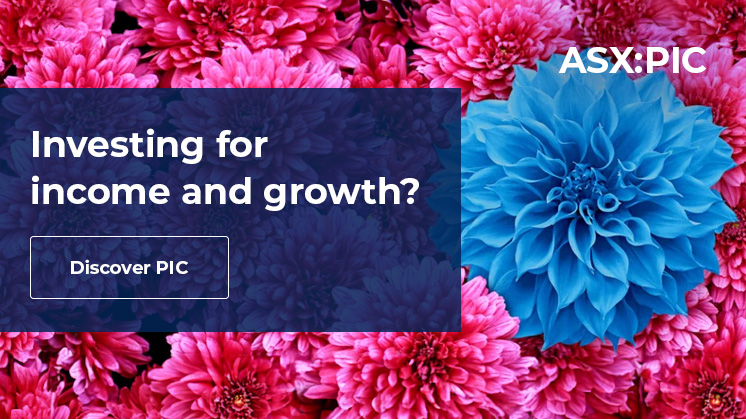
For all the talk of getting inflation under control, a range of factors are aligning to keep prices rising. The persistence of inflation will require a new mindset for equities investors. Perpetual’s VINCE PEZZULLO explains
- Fiscal policy, immigration, workplace reform put pressure on inflation
- Focus on quality equities
- Find out more about Perpetual Equity Investment Company (ASX:PIC)
This is an edited version of a presentation by Perpetual’s head of equities Vince Pezzullo at the Perpetual Equity Investment Company (ASX:PIC) AGM on Oct 19, 2023.
HIGH government spending, union-friendly industrial relations laws and rocketing immigration are putting unrelenting pressure on inflation – which means investors must adjust to higher-for-longer interest rates, says Perpetual’s head of Australian equities Vince Pezzullo.
The economic shift means investors will need to pay close attention to company valuations and avoid business models built on the previous era’s assumption of low interest rates and minimal inflation, he says.
Higher rates will mean shorter and more volatile market cycles, meaning investors should seek out profitable companies with strong balance sheets and competent management.
“We’re going to have persistent system inflation for a while and because of that, we’re going to have higher real rates for a lot longer,” says Pezzullo, speaking at Perpetual Investment Company’s annual meeting.
“If you look at history, we’re equating this to the 70s where there were quite a few similarities – an oil crisis, higher labour rates, and more chances of strikes because of new legislation.”
Pezzullo says the Labor government’s new industrial relations laws represent a significant threat to investors by reducing the flexibility of the Australian workforce.
Wage levels tend to ratchet higher over time because the rates set in any Enterprise Bargaining Agreement tend to form the base line for future negotiations.
Recent changes also mean regulators can set pay rates across an entire industry if just one company comes to an agreement, he says.
“That’s pretty aggressive given we are in cost-of-living crisis. We’re expecting that wages will grow well more than 3 or 4 per cent – 5s and 6s – and that’s pretty material.”
The migration factor
At the same time as pressure on wage costs, more than 400,000 people a year are migrating to Australia since the borders opened post-COVID, putting further pressure on inflation as they compete for limited housing stock.
“When immigration goes from zero to 400,000 people, and you’ve been under-building to accommodate for that, there’s only one thing that changes – inflation.
“These problems are here to stay.
"What you need is real supply-side reform – that means land release and that’s getting into a sticky situation dealing with local governments.
"The only way you get rid of these problems is by having a pretty material recession. I don’t think the RBA wants that and nor does the government.
"So, at the moment, while they can afford to service the government bonds, they will keep things going.”
Fiscal policy impact
Pezzullo says the government’s expansionary fiscal policy is exacerbating inflation and putting upwards pressure on interest rates.
“We have a high inflationary environment with still expansionary fiscal policy for most governments. It adds fuel to the fire – not as big as it was a few years ago, but still not allowing the economy to readjust.”
Global pressures are also fuelling higher prices.
The US government’s flagship Inflation Reduction Act will see spending of close to US$1 trillion to encourage investment in renewable energy and energy efficiency.
“Typically, when a politician gives a name to a program of spending, it means the complete opposite. The ‘Inflation Reduction Act’ has done the reverse,” says Pezzullo.
“It’s effectively a war for global capital. Whenever there’s a tax incentive, you’ll find a company trying to find it so global capital is now charging towards the United States and that is quite inflationary.”
Meanwhile, tight oil supply from the Middle East is lifting energy prices while America’s shale oil reserves are starting to get exhausted.
“Saudi Arabia needs about US$90 a barrel of oil to balance their budget right now – so they’re not adding any more supply. It sounds dire, but it feels a bit like the 70s.”
For Australia, Pezzullo says the consequences is likely to be a per-capita recession.
“It’s very hard to have large recessions when you have that much immigration growth – but everyone’s ability to spend more will be lowered. It will feel like a recession.”
What it means for investors
Pezzullo argues investors should avoid the types of investments that have worked for the past decade including fast-growing technology firms and highly indebted utilities.
“With higher real rates, it typically will favour having a bit more balance in the portfolio.
“You want companies that will generate cash flow today – because they can pay you dividends out of cash today, and they don’t have to borrow.”
About Vince Pezzullo and Perpetual Equity Investment Company (ASX:PIC)
Vince is Perpetual’s head of equities and portfolio manager of Perpetual Equity Investment Company (ASX:PIC).
Vince has more than 20 years of experience in financial services including global experience as an analyst and portfolio manager.
Perpetual Equity Investment Company Limited (ASX:PIC) is a listed investment company which provides a simple and transparent way to invest in a diversified portfolio of high quality Australian and global listed securities.
PIC is managed to provide investors with an income stream and long-term capital growth.
Perpetual is a pioneer in Australian quality and value investing, with a heritage dating back to 1886.
We have a track record of contributing value through “active ownership” and deep research.
Find out about Perpetual Equity Investment Company (ASX:PIC)
Browse Perpetual’s Australian equities capabilities
Want to know more? Contact a Perpetual account manager

